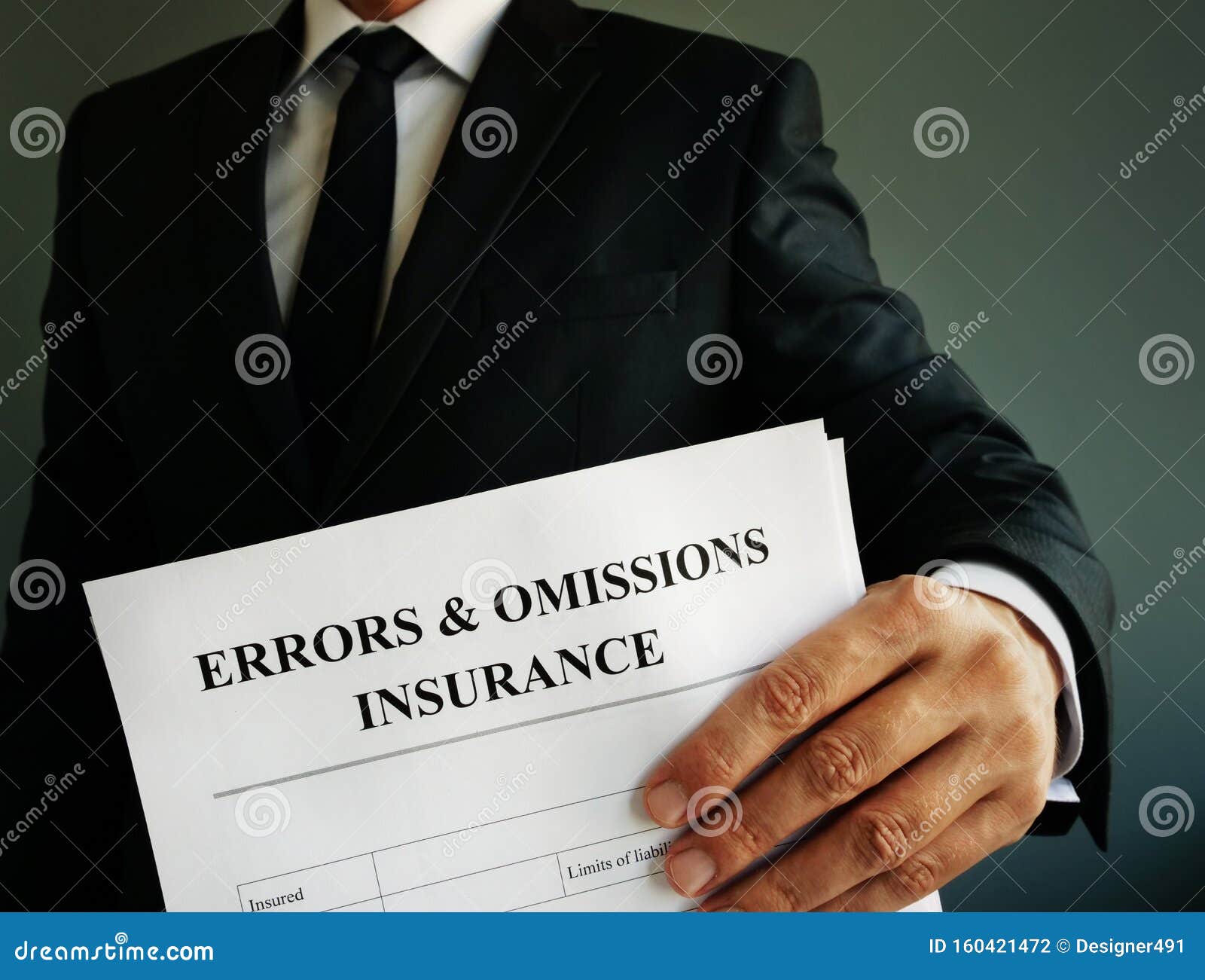E&o insurance for real estate agents – Errors and omissions (E&O) insurance is a crucial safeguard for real estate agents, providing a safety net against financial losses resulting from unintentional mistakes or negligence. This article delves into the intricacies of E&O insurance, exploring its coverage, benefits, and strategies for minimizing risk.
Understanding the nuances of E&O insurance empowers real estate agents to make informed decisions, ensuring the protection of their businesses and reputation.
Definition of Errors and Omissions (E&O) Insurance
Errors and Omissions (E&O) insurance is a type of professional liability insurance that protects real estate agents from claims of negligence, errors, or omissions made during the course of their work.
E&O insurance is essential for real estate agents because it provides financial protection in the event that a client files a lawsuit alleging that the agent made a mistake that caused them financial harm. Examples of errors and omissions that can occur in real estate transactions include:
Examples of Errors and Omissions
- Failing to disclose a material defect in a property to a buyer
- Misrepresenting the terms of a contract
- Failing to properly advise a client on the legal implications of a transaction
- Making a mistake in the preparation of a legal document
- Failing to follow up on a client’s request
Coverage Provided by E&O Insurance

Errors and omissions (E&O) insurance for real estate agents offers comprehensive protection against financial losses resulting from mistakes, errors, or omissions in their professional services.
E&O policies typically cover claims related to:
- Negligence or breach of contract
- Misrepresentation or failure to disclose material facts
- Errors in property valuations, inspections, or title searches
- Defective advice or recommendations
- Failure to obtain proper licenses or permits
Coverage limits vary depending on the policy, but most E&O policies provide coverage up to a specified amount per claim and aggregate limits for multiple claims.
Exclusions
E&O insurance policies typically exclude coverage for:
- Intentional or willful misconduct
- Claims arising from criminal acts
- Claims for punitive damages
- Claims arising from non-professional activities
Benefits of E&O Insurance for Real Estate Agents

E&O insurance provides real estate agents with a range of advantages that protect their business, reputation, and financial assets. By having this coverage, agents can operate with confidence, knowing that they have a safety net in place should they face legal claims.
Protection from Lawsuits
E&O insurance serves as a shield against lawsuits alleging errors, omissions, or negligence in the agent’s professional services. It covers legal expenses, including court costs, attorney fees, and settlements or judgments, safeguarding the agent’s financial stability.
Reputation Protection
A lawsuit can tarnish an agent’s reputation, even if they are ultimately found not liable. E&O insurance helps protect the agent’s reputation by providing coverage for legal defense, which can help resolve claims quickly and minimize negative publicity.
Peace of Mind
Knowing that they have E&O insurance gives real estate agents peace of mind, allowing them to focus on their work without the constant worry of being sued. It provides a sense of security, knowing that they have a financial safety net in place.
Competitive Advantage
In a competitive real estate market, having E&O insurance can give agents an edge. It demonstrates to clients that the agent is professional and takes their responsibilities seriously, which can lead to increased trust and business opportunities.
Factors Affecting E&O Insurance Premiums
The cost of E&O insurance for real estate agents is determined by several key factors, including:
Experience
Real estate agents with more experience typically pay lower premiums because they are considered less risky to insure. This is because experienced agents have a better understanding of the real estate market and are less likely to make mistakes that could lead to a claim.
Claims History
Agents with a history of claims will typically pay higher premiums. This is because insurance companies view agents with a history of claims as being more likely to file future claims.
Risk Management Practices
Agents who implement strong risk management practices can often lower their premiums. These practices include:
-
- Obtaining written contracts from all clients
- Disclosing all material facts to clients
- Maintaining adequate insurance coverage
li>Providing continuing education to agents
Choosing the Right E&O Insurance Policy
Selecting the appropriate E&O insurance policy is crucial for real estate agents to protect themselves against potential claims. Consider the following factors:
Coverage Limits
Determine the appropriate coverage limit based on the potential risks associated with your business. Higher coverage limits provide more protection but come at a higher premium.
Deductibles
Choose a deductible that balances affordability with adequate coverage. A higher deductible lowers the premium but increases your out-of-pocket expenses in the event of a claim.
Insurance Company Reputation
Research the reputation and financial stability of potential insurance companies. Look for insurers with a strong track record of paying claims and providing reliable support.
Claims Process for E&O Insurance
Filing an E&O insurance claim involves several steps that real estate agents should be aware of to ensure a smooth and efficient process.
When an error or omission occurs, it’s crucial to promptly notify the insurance carrier. The agent should provide a detailed account of the incident, including the alleged error or omission, the parties involved, and any potential damages.
Required Documentation, E&o insurance for real estate agents
- Policy number and contact information
- Description of the alleged error or omission
- Names of parties involved, including clients, other agents, and brokers
- Documentation of damages incurred, such as financial losses or legal expenses
- Any correspondence related to the incident, including emails, letters, or phone records
Timeline for Processing Claims
The timeline for processing E&O insurance claims can vary depending on the insurance carrier and the complexity of the case.
Typically, the insurance carrier will acknowledge the claim within a few business days and assign a claims adjuster to investigate the matter. The claims adjuster will review the submitted documentation, interview the parties involved, and gather additional evidence to determine the validity of the claim.
Once the investigation is complete, the insurance carrier will make a decision on the claim. If the claim is approved, the insurance carrier will issue payment to the policyholder up to the limits of the policy.
Risk Management Strategies to Reduce E&O Claims

Errors and omissions (E&O) insurance can protect real estate agents from financial losses due to mistakes or negligence. By implementing effective risk management strategies, agents can minimize the likelihood of claims and enhance their professional credibility.
Here are some practical strategies to reduce E&O risks:
Communication
Clear and timely communication is crucial. Agents should:
- Document all conversations and agreements in writing.
- Respond promptly to inquiries and requests.
- Avoid making verbal commitments or promises.
- Obtain written consent before taking any significant actions.
Due Diligence
Thorough due diligence is essential to identify and mitigate potential risks. Agents should:
- Verify all information provided by clients and third parties.
- Review contracts carefully before signing.
- Conduct property inspections and disclose any known defects.
- Obtain legal advice when necessary.
Documentation
Detailed documentation provides a record of all actions taken and protects agents in the event of a claim. Agents should:
- Keep a chronological file of all communications, including emails, phone logs, and meeting notes.
- Document all property inspections, disclosures, and repairs.
- Maintain a record of all financial transactions.
Closing Summary

In conclusion, E&O insurance serves as an invaluable asset for real estate agents, mitigating financial risks and safeguarding their livelihoods. By carefully selecting a policy that aligns with their specific needs and implementing effective risk management strategies, agents can operate with confidence, knowing that they are protected against potential errors and omissions.